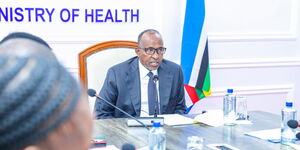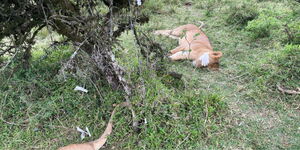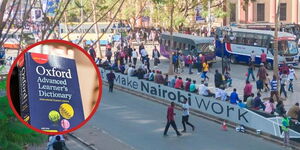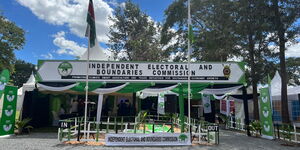American citizens have been warned against seeking surrogacy services in Kenya.
The caution was issued by Sensible Surrogacy, an ethical IVF/surrogacy consultancy with client support in Europe and North America.
In its argument, the consultancy firm maintained that the decision was based on the risks of unregulated surrogacy programs generally, the lower quality of medical care in the country, as well as the general risk to some travellers in Nairobi.
Bill Houghton, director of Sensible Surrogacy stated: “With restrictions appearing in southern and southeast Asia, several surrogacy agencies are offering low-cost options in Kenya and similar destinations.”
[caption caption="A pregnant woman"] [/caption]
[/caption]
The director further noted: “The lure of being able to have a baby on the cheap is attracting desperate couples into what could be a dangerous situation."
According to Houghton, the risks are too high and the chances of success in Kenya are limited with estimates of infant mortality in Kenya for 2017 recorded at 37 per 1,000 according to the CIA World Fact Book.
The CIA Fact Book further named Kenya the 49th most dangerous place to have a child worldwide out of 225 countries.
“We’ve checked with several online expat services, and they also warn foreigners about the quality of medical care. International insurance providers warn that most health care facilities in Kenya are below international standards with limited resources and limited capabilities,” Houghton stated.
The surrogacy director also argued that since most of their clients are LGBT couples and Kenya is homophobic hence they should avoid seeking surrogacy services in the East African country.
[caption caption="A pregnant woman"] [/caption]
[/caption]
“About 90% of our LGBT couples who pursue surrogacy were forced to consider Kenya. We just can’t justify putting these couples into a life-threatening environment when there are now much better options at home,” the director stated.
In Kenya surrogacy is allowed under the Assisted Reproductive Technology Bill, previously known as the In-Vitro Fertilisation Bill. The Bill was changed to increase the age of the surrogate mother from 18 to 25 years.
Once the child is delivered, the surrogate host hands it over to the commissioning couple guided by the terms of a contract signed between the two parties.
It involves retrieval of eggs from the donor woman, their fertilisation using her man’s sperms in a laboratory and transfer of the resulting embryo into the surrogate mother’s womb.












